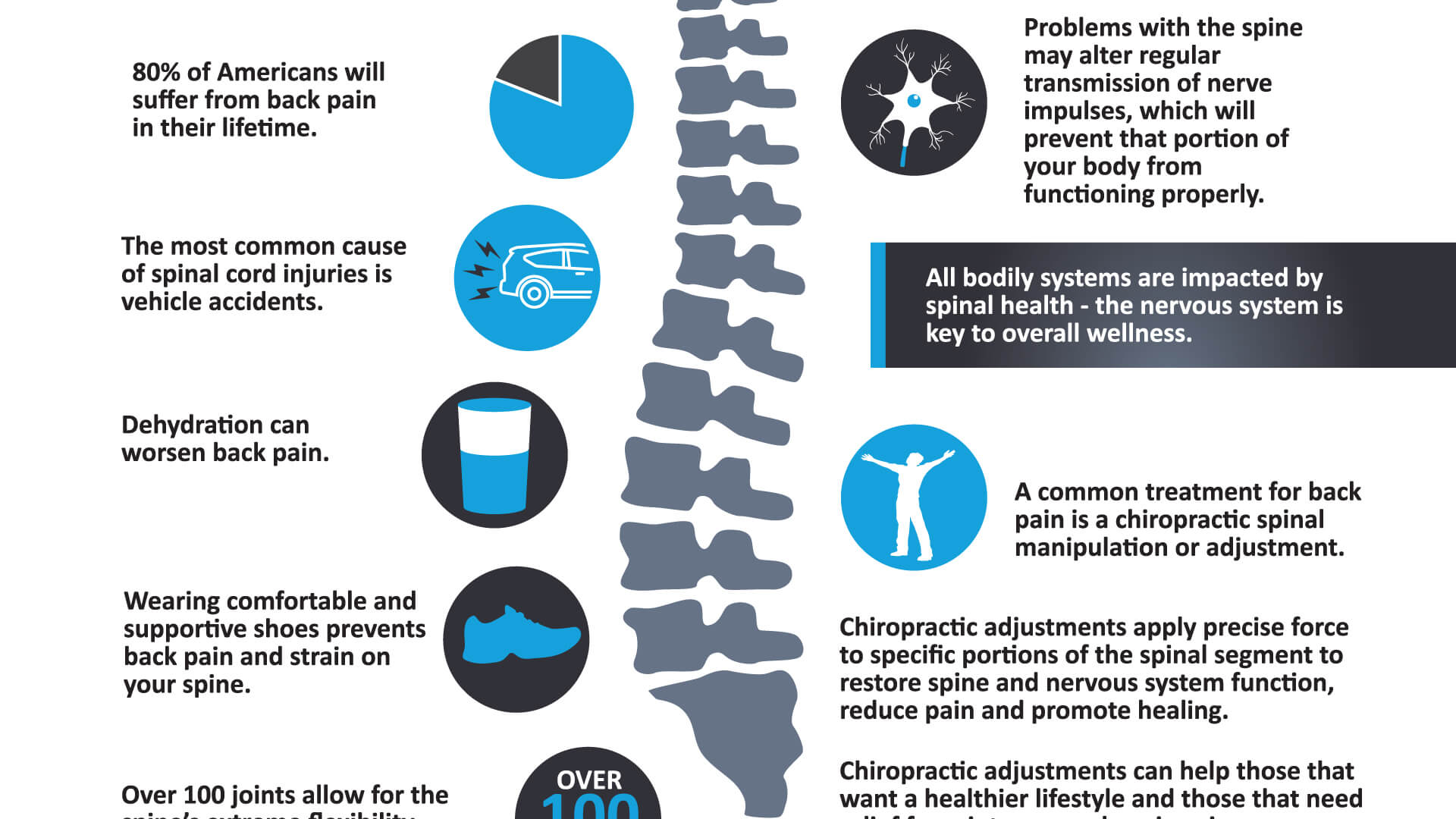The Influence Of Diet On Pain In The Back Monitoring: Foods To Include And Foods To Exclude
The Influence Of Diet On Pain In The Back Monitoring: Foods To Include And Foods To Exclude
Blog Article
Uploaded By-Locklear Hardin
When it concerns managing your pain in the back, the food choices you make can substantially affect how you feel each day. Picture being able to alleviate your discomfort just by readjusting what you consume. By understanding the function of nourishment in pain in the back management and knowing which foods to include or steer clear of, you can take proactive actions in the direction of a healthier and extra comfortable way of life. The connection in between nutrition and back wellness is more extensive than you may understand-- let's explore how certain foods can either soothe or intensify your pain in the back.
Importance of Nutrition in Back Pain
Nutrition plays a critical function in taking care of pain in the back. https://using-a-chiropractor-afte84051.spintheblog.com/32479886/a-day-in-the-life-of-a-pain-in-the-back-victim-tips-for-managing-pain-at-the-workplace can substantially affect inflammation levels and total pain levels in your back. Consuming a well balanced diet rich in nutrients like vitamins D and K, calcium, magnesium, and omega-3 fats can help reduce swelling and reinforce bones, which are crucial for back health.
Furthermore, maintaining a healthy weight with correct nutrition can ease tension on your spinal column, reducing the risk of neck and back pain.
Moreover, certain nutrients like anti-oxidants located in fruits and vegetables can assist fight oxidative stress and promote healing in the body, including the back muscle mass and spine.
On the other hand, eating extreme quantities of refined foods, sweet drinks, and unhealthy fats can contribute to inflammation and weight gain, intensifying back pain.
Foods to Eat for Back Wellness
To support a healthy and balanced back, including nutrient-rich foods right into your day-to-day meals is crucial. Including you could look here in antioxidants like berries, spinach, and kale can help in reducing inflammation in your back, relieving discomfort and pain. Omega-3 fats discovered in fatty fish such as salmon and mackerel have anti-inflammatory residential or commercial properties that can benefit your back wellness.
Additionally, consuming nuts and seeds like almonds, walnuts, and chia seeds provides important nutrients like magnesium and vitamin E, which sustain muscular tissue function and lower oxidative tension. Integrating lean healthy proteins such as poultry, turkey, and tofu can aid in muscle mass fixing and maintenance, promoting a strong back.
Don't neglect to consist of dairy products or fortified plant-based alternatives for calcium to support bone health. Finally, moisten with plenty of water to maintain your spine discs hydrated and functioning efficiently. By including these nutrient-dense foods in your diet plan, you can nourish your back and support general spine health.
Foods to Avoid for Pain In The Back
Choose staying clear of refined foods high in added sugars and trans fats when looking for remedy for neck and back pain. These sorts of foods can add to swelling in the body, which might aggravate pain in the back. Say no to sugary snacks like candy, pastries, and sugary beverages, in addition to convenience food things like burgers, french fries, and fried poultry that are commonly filled with trans fats.
In addition, steer clear of foods having high degrees of refined carbs, such as white bread, pasta, and breads, as they can spike blood glucose degrees and potentially aggravate inflammation in the body.
It's likewise wise to limit your intake of foods high in saturated fats, like red meat and full-fat dairy items, as they can add to swelling. Processed foods like delicatessens meats, chips, and packaged treats are often high in saturated fats and should be consumed in small amounts.
Verdict
Finally, taking note of your diet plan and making smart food selections can have a significant influence on handling pain in the back. By including nutrient-rich foods like berries, fatty fish, nuts, and lean healthy proteins, and avoiding refined and sugary products, you can help in reducing inflammation and support on the whole back health. Keep in mind, what you consume plays a vital role in how you really feel, so make sure to prioritize your nourishment for a much healthier back.
